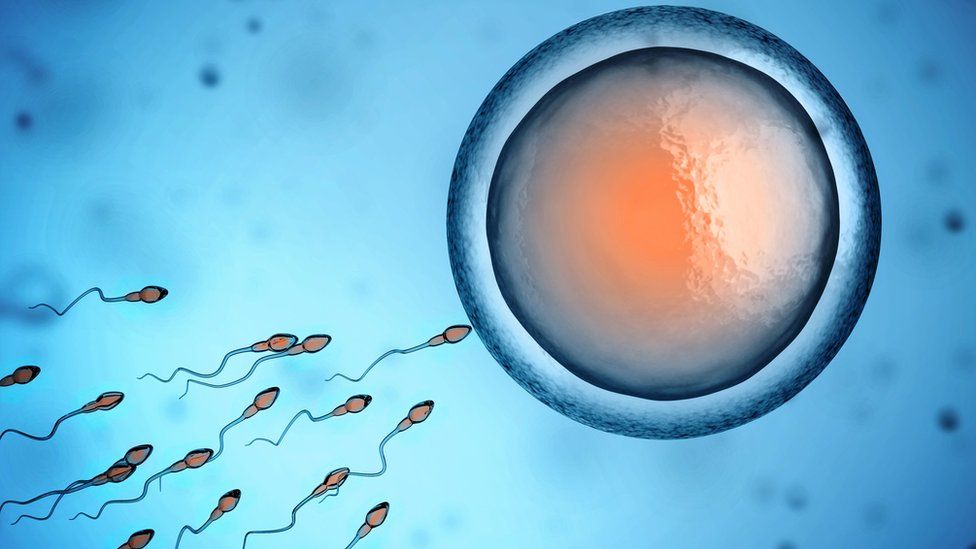Birth control: Male contraceptive injection 'shows promise'
- Published

A hormone injection has been shown to be a safe and effective method of contraception - for men.
US researchers say the jab was almost 96% effective in tests on around 270 men who were using it, with four pregnancies among their partners.
However, a relatively high number developed side effects, including acne and mood disorders.
Researchers have been investigating potential for male hormonal contraceptives for around 20 years.
They have all been looking for an effective way of suppressing sperm production without causing unpleasant or unbearable side effects.
Because men constantly produce sperm, high levels of hormones are needed to reduce levels from the normal sperm count of over 15 million per millilitre to under one million/ml.
Mood disorders
This study was published in the Journal of Clinical Endocrinology & Metabolism, and published by the Endocrine Society.
It looked at men aged 18-45 who had been in monogamous relationships for at least a year - and whose partners had agreed to take part.
The men's sperm counts were checked at the beginning of the study, to ensure they were normal.
They then had two hormone injections (progesterone and a form of testosterone) every eight weeks, and were monitored for up to six months until their sperm count fell to under a million.
They were then asked to rely on the jab, which they continued to have at the same interval, as their only form of contraception during the efficacy stage of the study, which lasted for up to a year,
Once they stopped having the injections, they were monitored to see how quickly their sperm counts recovered.
Eight men had not recovered their normal sperm counts a year after the study ended.
Dr Mario Festin, of the World Health Organization (WHO) in Geneva, who carried out the study, said: "The study found it is possible to have a hormonal contraceptive for men that reduces the risk of unplanned pregnancies in the partners of men who use it."
The researchers stopped taking on new participants in 2011 after concerns were raised about side effects such as depression and other mood disorders, as well as muscle pain and acne.
Such side effects caused 20 men to drop out of the study and were reported by many others,
Unmet need
Dr Festin said other researchers were now looking at combining different levels of the same hormones, and different ways of delivering them, such as gels.
He added: "This has been one step in a long journey of finding the right combination for male hormonal contraception."
Allan Pacey, professor of andrology at the University of Sheffield, said: "There is certainly an unmet need for an effective reversible contraceptive for men, along the lines of the hormonal contraceptive for women.
"However, none of the preparations that have been developed and tested to date have managed to become a commercial reality for one reason or another."
He said the contraceptive in this study was "extremely effective and therefore certainly has promise" and that the number of side effects seen was a concern.
But he added: "It is noteworthy that 75% of the men who took part in the trial would be willing to use this method of contraception again.
"So perhaps the side-effects weren't all that bad after all."
- Published17 August 2012
- Published25 May 2012